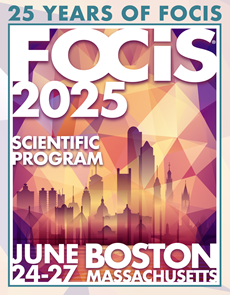Stem Cell and Organ Transplantation
Session: Immunoengineering and Therapeutics
Combinatorial Genetic Engineering Strategy for Antigen-specific Protection of Stem Cell-derived Beta Cells by Chimeric Antigen Receptor Regulatory T Cells
Thursday, June 26, 2025
4:55pm - 5:10pm East Coast USA Time
Location: Salons F-G
Jessie Barra – University of Florida; Roberto Castro-Gutierrez – University of Florida; James Proia – University of Florida; Rob Robino – Medical University of South Carolina; Holger Russ – University of Florida
- LF
Leonardo M.R. Ferreira, PhD
Assistant Professor
Medical University of South Carolina
Charleston, South Carolina, United States
Presenting Author(s)
Abstract Text: Regenerative medicine harnesses human pluripotent stem cell (hPSC)-derived cells and tissues to treat many diseases, including autoimmune disorders. Yet, immune protection of grafts remains a critical challenge for widespread implementation. Chimeric antigen receptor (CAR) technology can confer new antigen specificities to effector T cells and, more recently, regulatory T cells (Tregs), potent immunosuppressive cells. However, a key challenge in CAR design is identifying a target molecule uniquely expressed by the cells of interest to maximize efficacy and safety. We developed a combinatorial genetic engineering approach to confer CAR-Treg-mediated localized immune protection to stem cell-derived cells using a humanized type 1 diabetes preclinical mouse model. hPSCs were modified to express a truncated epidermal growth factor receptor (EGFRt), a biologically inert local target for CAR-Treg homing and activation. In parallel, we generated EGFR CAR Tregs were generated. EGFR CAR Tregs were activated by EGFRt-expressing hPSC-derived pancreatic beta-like cells (sBC) and suppressed innate and adaptive effector immune responses in vitro. Strikingly, EGFR CAR Tregs, but not polyclonal Tregs, protected transplanted EGFRt-expressing insulin-producing sBCs from CAR-T-cell-mediated destruction in NSG mice in the absence of any additional gene edits in the sBCs. Towards translation into the clinic, we have developed and validated a new engineered inert cell surface ligand and a CAR specific for it. Ongoing experiments aim to evaluate this ligand-CAR pair in a humanized mouse model of type 1 diabetes, dissect the mechanisms of CAR Treg-mediated graft protection, and explore synergies with immunoregulatory gene edits in hPSCs.

